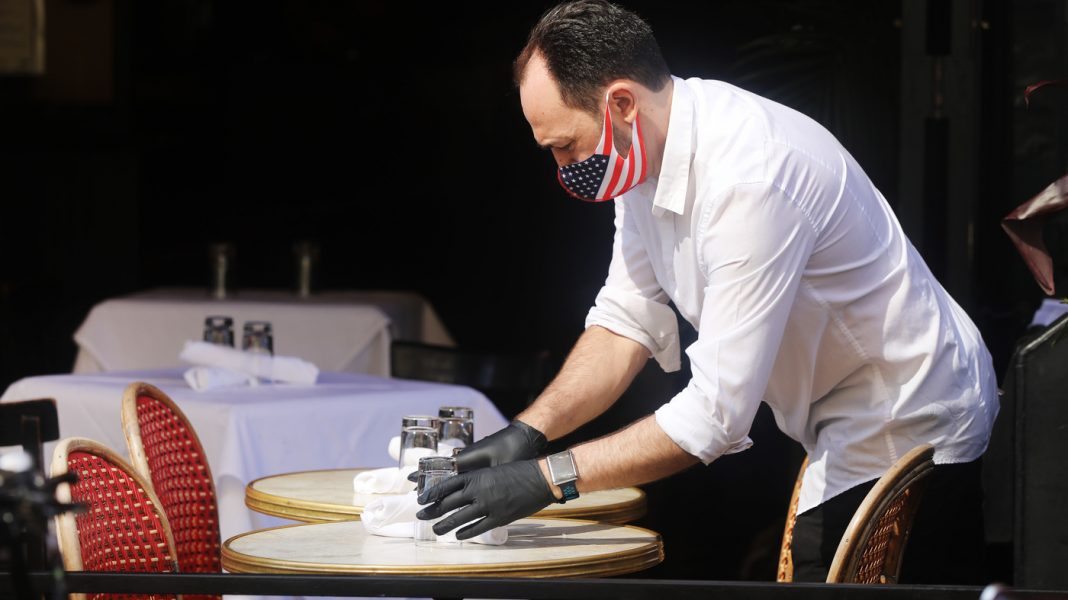
A restaurant server in New York prepares a table.
Spencer Platt/Getty Images
hide caption
toggle caption
Spencer Platt/Getty Images

A restaurant server in New York prepares a table.
Spencer Platt/Getty Images
Employers added 4.8 million jobs last month, as the U.S. economy continued to slowly bounce back from a deep and painful coronavirus recession. The unemployment rate dipped to 11.1%.
Job growth accelerated from May, when revised figures show employers added 2.7 million jobs.
What’s odd, this time, is that the closely-watched monthly jobs report offers a snapshot of the economy that was already somewhat out of date as soon as it was issued.
The Labor Department report reflects conditions from the middle of June. The COVID-19 outbreak has since been accelerating in many states, which could put the brakes on the nascent economic recovery.
In just the last week, governors in Florida and Texas have ordered bars to close for a second time in an effort to slow the spread of the pandemic. California has halted indoor restaurant dining and closed movie theaters for most of its residents. Arizona has also shut down water parks and gyms for 30 days.
Many states have paused their reopening plans.
And even in the absence of government orders, people tend to be more cautious about going out and spending money when there’s an uptick in coronavirus infections.
Tucson bartender Karen Schenck noticed a sharp drop in business as the pandemic gained ground there.
“We’re risking our health for peanuts,” says Schenck. “You go from making $80 in tips in a couple of hours and now you’re doing $15. How can anybody make a car payment?”
Federal Reserve Chairman Jerome Powell has cautioned that the outlook remains “extraordinarily uncertain.”
“A full recovery is unlikely until people are confident that it is safe to reengage in a broad range of activities,” Powell said in testimony before the House Financial Services Committee.
Still, Powell was encouraged by the resurgence of economic activity when people returned to their jobs last month. Sixto Zermeno was one of them. The veteran hotel bellman went back to work in early June when casinos reopened in Las Vegas.
But Zermeno had been back on the job for only a few days when he got sick with the coronavirus. He’s since recovered, but remains in quarantine.
“I’m a hard worker, so if you tell me to go to work, I’m going to go to work,” Zermeno said. “But I feel nervous now because of how contagious this is. I never knew how easy this spreads.”
The culinary union, which represents Zermeno and other Vegas workers, is suing several casino operators, saying they’re not doing enough to protect their workers.
Tallies from companies that make scheduling software such as Kronos and HomeBase suggest workers’ hours have declined in the most recent weeks in parts of the country where infections have spiked.
“The economic outlook isn’t just evolving month by month or week by week. It is changing day by day and hour by hour,” said Dave Gilbertson, vice president of strategy and operations at Kronos. “While payroll data lags by several weeks and longer, shift data is available is near real-time.”









